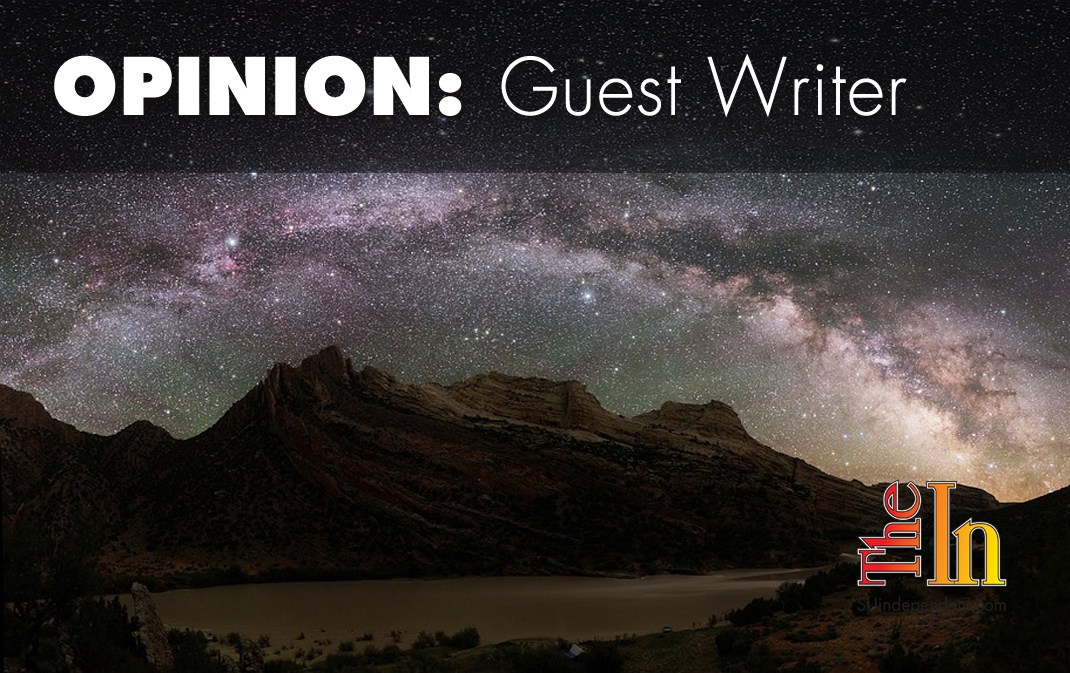 By Melissa Jessop
By Melissa Jessop
The desecration of national monuments isn’t a new battleground in the United States. It certainly isn’t new to Utah. We are privileged to live in a state with extraordinary natural beauty that cannot be found anywhere else on earth. It is our duty as Utahns, and as Americans, to protect these lands.
In the 1950s, the Bureau of Reclamation functioned as a powerful government entity in a dam-crazed America. Energy was American. Domesticating wild rivers was American. In the cradle of a political climate that favored dams, the Bureau overstepped with the proposal of plugging up Echo Canyon in Dinosaur National Monument.
For the first time in our nation’s history, public outcry challenged the Bureau of Reclamation. Because Dinosaur National Monument was a federally protected space, we the people decided that public land takes precedence over energy and resource extraction. This was our decision over 75 years ago. As a result of saving Dinosaur National Monument, Glen Canyon — Wallace Stegner’s “superb national park” — was proposed as an alternative dam site. Because Glen Canyon was not designated as a federally protected space, it was dammed.
Saving Echo Canyon was a victory. The loss of Glen Canyon was a tragedy.
Ancestral Puebloans, formerly called Anasazis, inhabited the canyons of southern Utah for thousands of years. Pictographs, kivas, pots, granaries, moqui steps, arrowheads, and petroglyphs were to be scavenged and documented by teams of archeologists the years before Glen Canyon Dam was complete. Congress voted against a place it had never seen in order to spare another place that already had federal protection: Dinosaur National Monument
Donald Trump voted against two places he has never seen: Bears Ears National Monument and Grand Staircase Escalante National Monument. This time, though, there is no dignity to hide behind; he has saved nothing except the opportunity for Big Oil and Gas to have their way with sacred land. Is this the narrative we will choose to continue endorsing? The choice, after all, is ours.
Nobody asked the descendants of ancestral Puebloans for their opinion on the creation of Glen Canyon Dam. Nobody asked how they would feel knowing their ancestor’s grave sites, artifacts, and sacred lands were drowned. Their history has been submerged under hundreds of feet of water and layers of silt for half a century.
Today, we have the chance to ask the decedents of ancestral Puebloans: the Hopi, Navajo, Uintah and Ouray Ute, Ute Mountain Ute, and Zuni Nations — all of which are part of the Bears Ears Intertribal Coalition — how they would like their sacred lands to be protected.
Living in a state where so many people cherish their pioneer ancestors’ heritage, I ask us to look at ourselves and empathetically ask, “How would I feel if all of my family history were buried underwater or exposed for desecration?” It seems beyond basic for Utahns, and Mormons in particular, to understand the importance of ancestral history and grant the same protections to native peoples that we ourselves expect.
What will we the people decide? Over 75 years ago, we chose to save Echo Canyon; we chose to preserve our national monuments. Over 75 years ago, we also chose to dam Glen Canyon; we chose to desecrate ancestral Puebloans’ homeland. Is it still American to preserve nationally protected spaces? Is it American to add insult to injury and allow a man who has never stepped foot on the soils of Bears Ears to desecrate sacred space? It’s time to stop dodging the politics of public lands because it makes you uncomfortable. In 75 years, whatever we choose to do or ignore today will matter to every person in our nation.
Articles related to “Shall we let them ruin our national monuments?”
Zion National Park celebrates National Park Service centennial anniversary with desecration festival
Utah theo-constitutional activists are eating themselves over public lands
Public lands are not the states’ to “take back,” but they may get them after all



